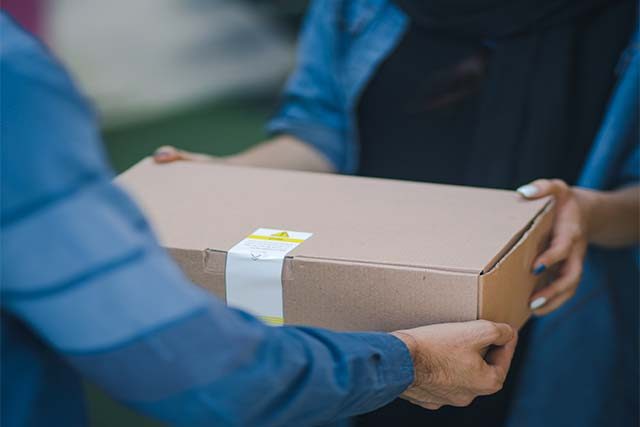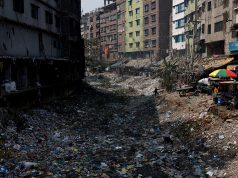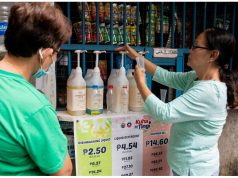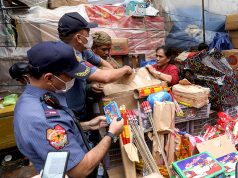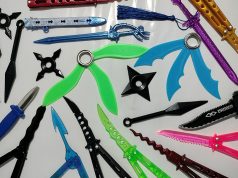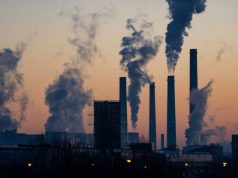Environmental groups warned Filipinos against products that could pose threats to their health, safety, and the environment in light of the big shopping festival on September 9.
The 9.9 which is equivalent to the date September 9 is among the many much-awaited shopping events in big e-commerce platforms such as Lazada, Shopee and Beauty MNL.
E-commerce platforms tomorrow be like…
Posted by Pj Tolentino on Monday, September 7, 2020
Following the tough lockdowns last March, Filipinos resorted to online shopping and merchants also explored digital platforms to sell their products amid the novel coronavirus pandemic.
Being cautious during the big shopping day
Environmental group EcoWaste Coalition issued a statement that advised online shoppers to be vigilant against counterfeit and hazardous products.
“While accessible, convenient and safer in this time of public health emergency, there are many threats lurking online that shoppers need to be cautious about such as deceptive advertisements, scams, and adulterated, counterfeit and hazardous products,” Thony Dizon, Chemical Campaigner of the group said.
“While accessible, convenient and safer in this time of public health emergency, there are many threats lurking online that shoppers need to be cautious about such as deceptive advertisements, scams, and adulterated, counterfeit and hazardous products,” he added.
EcoWaste suggested the following tips for consumers to protect themselves against products that might comprise their health and safety.
- Research before making any purchase (ask a friend, critically read customer reviews, and check the Internet for public health warnings, recall advisories and the like).
- Read the product description carefully. Do not be misled by over-the-top and unsubstantiated claims.
- Examine the product’s photo and detect possible “red flags” that it is not authentic such as low-quality image or logo discrepancy.
- Other red flags are: inadequate product information, labeling in foreign characters, poor quality photos, grammatical mistakes, misspellings, wild claims, unresponsive sellers, etc.
- Ask the seller relevant questions about the product before purchasing it.
- While discounted products are attractive to buy, be skeptic with extra low prices and offers.
- Do not buy products that misuse the logo of the Food and Drug Administration (FDA) of the Philippines or the USA.
- In line of this, do not purchase medical devices and supplies, personal care and cosmetic products that lack authorization from the FDA. Buy medicine and health-related goods from licensed pharmacies instead.
- Be cautious in buying toys for children with hazardous materials such as button batteries, small magnets, long cords, lead paint and other toxic substances.
The Department of Trade and Industry previously reminded online sellers to display the prices of their wares as mandated by the Consumer Act of the Philippines.
READ: PM is the key? DTI reminds online sellers to display prices on online platforms
The FDA also issued advisories against the selling of unregistered/unnotified medical devices, and medicines or prescribed drugs in online stores instead of licensed pharmacies.
The Bureau of Internal Revenue, meanwhile, mulled on imposing tax and regulating the booming local e-commerce industry following the rise of reports of online scams and fraudulent sellers.
Making e-commerce platforms accountable
#Breakfreefromplastic is a global movement working towards a future free from plastic pollution.
The BFFP Philippines project, a collaboration of #breakfreefromplastic members EcoWaste Coalition, GAIA Asia Pacific, Greenpeace Southeast Asia, Health Care Without Harm Southeast Asia, and Mother Earth Foundation in partnership with No Burn Pilipinas and Oceana International Philippines are calling on the public to make e-commerce plastic responsible for their “excessive plastic waste.”
The groups specifically urged Lazada and Shopee to reduce the amount of plastic packaging for delivery of items.
Ready na ba tayo para sa Lazada & Shopee BIG SALE? 💯 Eh ang Mother Earth kaya? 🥺Ilang tonelada na naman ng single-use…
Posted by Greenpeace Philippines on Tuesday, September 8, 2020
The organizations also posted infographics on the overall figures related to plastic production in the Philippines, and its demands and suggestions to the e-commerce companies to promote eco-friendly packaging.
“Ilang tonelada na naman ng single-use plastic packaging ang magiging basura. As our plastic waste piles up, it is high time we not only reduce our own plastic consumption, but also demand from e-commerce companies to regulate unnecessary plastic packaging,” Greenpeace Philippines said.
“Some vendors are already doing it, so why can’t Lazada and Shopee cut down on packaging requirements and shift to sustainable solutions?” it asked.
They also urged the e-commerce platforms to cut back on such “unnecessary plastic packaging.”
“As our plastic packaging waste piles up, it is high time that we also demand e-commerce companies like @shopee_ph and @lazadaph to regulate unnecessary plastic packaging. If vendors can adjust, so can Lazada and Shopee by cutting down on packaging requirements and shifting to real solutions,” the BFFP said.
It’s the 9.9 #onlineshopping sale tomorrow! As our plastic packaging waste piles up, it is high time that we also…
Posted by Break Free From Plastic on Tuesday, September 8, 2020

